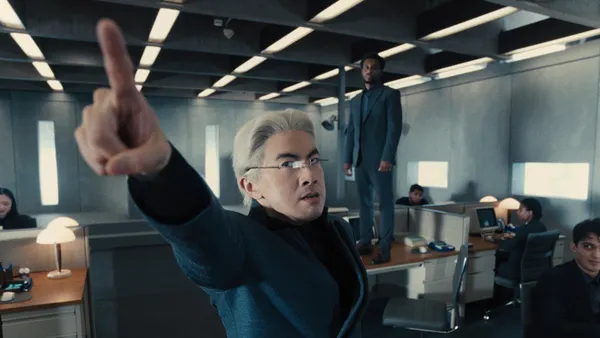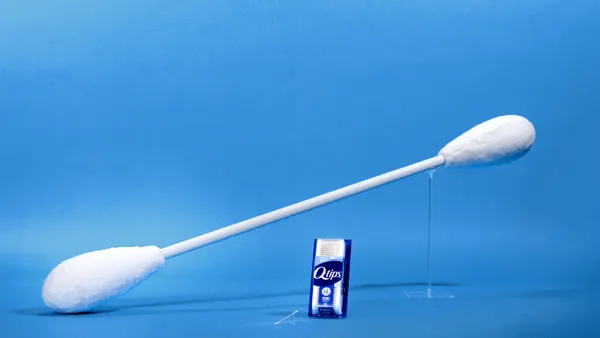Dive Brief:
- Liquid Death, a water brand packaged in recyclable aluminum cans, has launched a new marketing campaign calling out the overuse of plastic bottles, according to details shared with Marketing Dive.
- The humorous "Keep the Underworld Beautiful" effort is centered around a video of hell getting filled up with plastic garbage coming down from Earth. The demons urge people to stop consuming and discarding plastic, because it is ruining the aesthetics of the underworld.
- The video is supported by a social media hashtag, #DeathToPlastic, which the brand is pushing to encourage consumers to give up on plastic bottles. The new campaign is timed for the national roll-out of Liquid Death in Whole Foods beginning in March and the brand's launch of a sparkling water.
Dive Insight:
Liquid Death is a water brand positioned as an alternative to water that comes in plastic bottles. The company, which recently raised $9 million from investors, is banking on its new campaign to help Liquid Death stand out from the competition in a crowded category thanks to its use of recyclable aluminum for packaging and by pitching the brand as eco-responsible and humorous at the same time.
The playful campaign highlights that no one, not even the demons in hell, wants to see the planet covered in plastic that does not break down. Consumers buy a million plastic bottles per minute, but 91% of all plastic is not recycled, according to the brand. Aluminum, on the other hand, can be recycled over and over and has more than 20 times the recycled material per can as compared to a plastic bottle.
The environmental message may appeal to a growing number of consumers who see plastics as a problem. Sixty-one percent of consumers are concerned about the current climate impact of plastic packaging, and two-thirds think disposable plastic packaging is the worst it's ever been, per a Packaging Digest report.
Mike Cessario, a former Netflix creative, founded Liquid Death. The brand's marketing features heavy metal fonts and tall boy packaging, which could help it come across like a craft beer and appeal to edgy consumers looking for an alternative to water in plastic bottles. The approach could appeal to millennials, 35% of whom are drinking less alcohol and 27% of whom are drinking less beer, in particular, per research cited by Business Insider.











